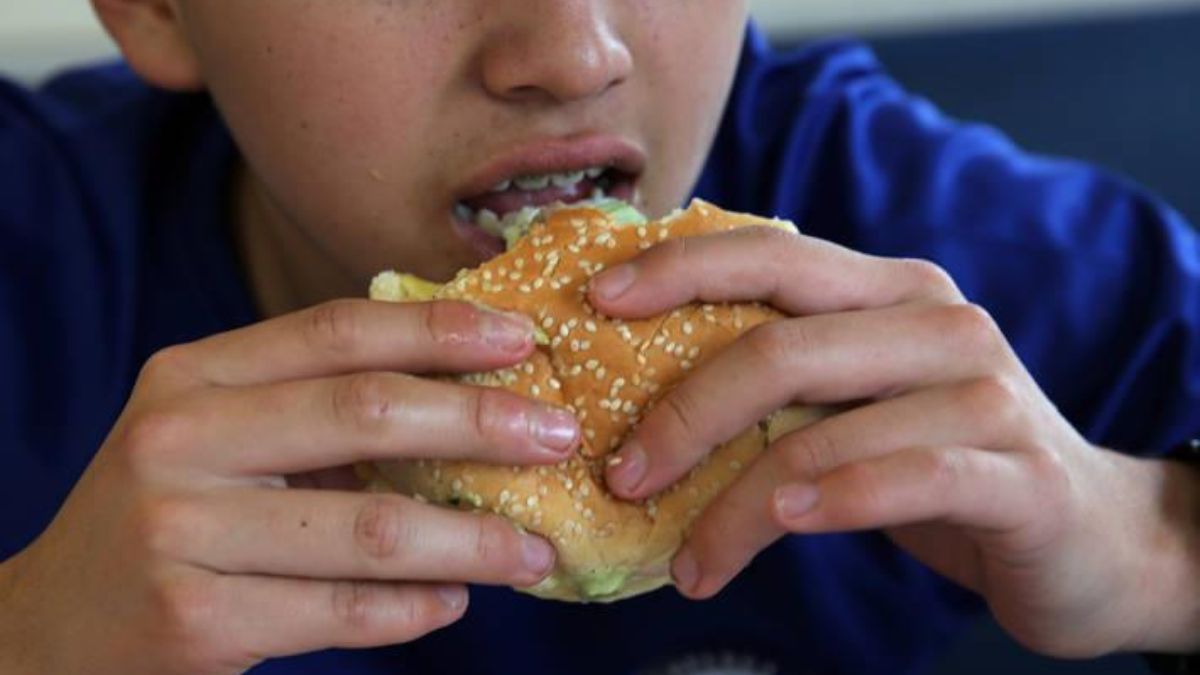We’ve known for a while that our go-to ultra-processed foods, like fast food, sugary drinks, and instant meals, aren’t exactly the best for our health. They’re often linked to heart problems and metabolic issues.
But now, a new study points to another worrying connection. These foods might also raise the risk of lung cancer.
Published in the journal Thorax, the research found that people who ate the most
ultra-processed foods had a 41 per cent higher risk of developing lung cancer compared to those who ate the least.
So, what counts as ultra-processed food? And how could it be linked to cancer? Here’s what we know about the new study.
But first, what are ultra-processed foods?
Ultra-processed foods (UPFs) are industrially manufactured products made from a combination of refined ingredients and additives.
They are designed to be hyper-palatable, convenient, and have a long shelf life. Unlike minimally processed foods, UPFs are made mostly from substances extracted from foods, such as fats, starches, added sugars, and unhealthy fats, rather than the whole food itself.
They undergo extensive alterations and typically contain artificial substances like emulsifiers, preservatives, colourants, and sweeteners. As a result, UPFs tend to be calorie-dense but low in essential nutrients and fibre, making them nutritionally poor despite their appealing taste.
In the UK and US, more than half of the average diet consists of ultra-processed foods (UPFs), which include frozen meals, soft drinks, hot dogs and cold cuts, fast food, packaged cookies, cakes, and salty snacks.
What does the new study reveal?
The study draws data from the US Prostate, Lung, Colorectal and Ovarian (PLCO) Cancer Screening Trial, which followed over 100,000 Americans aged 55 to 74. Participants enrolled between 1993 and 2001, and their health was tracked for more than a decade.
Out of 101,732 people who filled out food questionnaires at the start, researchers categorised their diets based on how processed the foods were, with a special focus on ultra-processed foods (UPFs) like lunch meats, soft drinks, ice cream, baked goods, instant noodles, and fast food.
On average, people consumed nearly three servings of UPFs a day, with some having up to six. Over 12 years, 1,706 lung cancer cases were diagnosed, including both non-small cell lung cancer (NSCLC) and small cell lung cancer (SCLC).
Even after accounting for factors like smoking and diet quality, those who ate the most UPFs had a 37 per cent higher risk of NSCLC and a 44 per cent higher risk of SCLC.
The researchers believe rising global consumption of UPFs could be contributing to the growing burden of diseases, such as cancer and stressed the need for more research to confirm these findings across diverse populations.
“Over the past two decades, consumption of ultra-processed foods has significantly increased worldwide, regardless of development or economic status,” the authors wrote. This rise may be driving global increases in obesity, cardiovascular disease, and cancer, they added.
How might heavily processed foods increase cancer risk?
Researchers believe one reason is that ultra-processed foods often replace healthier options, like fruits, vegetables, and whole grains, that may help protect against
cancer. When diets become dominated by UPFs, there’s simply less room for the good stuff.
There’s also growing concern about the additives and chemicals found in these products. Ingredients like emulsifiers, preservatives, artificial colours, and acrolein (a toxic compound also found in tobacco smoke) may lead to inflammation, disrupt hormones, damage DNA, and upset the gut microbiome.
The packaging materials used for many of these foods can also be a source of risk. Chemicals like bisphenol A (BPA) and phthalates, commonly found in food containers and wrappers, may leach into the food and have been linked to health issues, the study noted.
So, what can you do?
Nutritionist Rob Hobson, author of Unprocess Your Family Life, told The Independent that it’s less about blaming specific foods and more about c
“That might mean cooking more from scratch where possible, adding in more whole foods like vegetables, beans and grains, or just becoming more aware of how often UPFs show up in your day,” he said
Also read: What is fibremaxxing, the new diet trend taking over social media? How safe is it?
“It’s not about being perfect, it’s about balance and understanding how your food choices could be supporting or undermining your long-term health.”
In short, cutting back on ultra-processed foods doesn’t require a complete lifestyle overhaul. But being mindful of how often these foods appear on your plate, and gradually replacing them with more nutritious, whole foods, can go a long way in supporting better health.
With input from agencies

)

